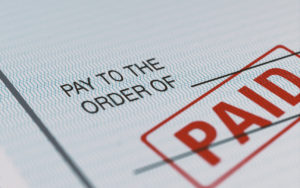Key Points
- The most important factor in how much a car accident case is worth is the severity of your injury.
- The amount of your compensation may also be affected by the amount of insurance available and the amount of your medical bills.
- Insurance Companies may inappropriately try to assign a settlement formula to your case, but your case may be worth more.
If you’ve sustained injuries from a car accident in Atlanta, or perhaps in the vicinity of Atlanta or anywhere across North or South Georgia, one of the foremost inquiries you’re likely to have following a severe car or truck collision concerns the potential value of your car accident claim settlement and the criteria for determining this amount.
Atlanta Car Accident Claim Settlements Are Not A Simple “Cash Grab”
While dramatic lawyer ads on TV or tales like Uncle Vinny’s Thanksgiving saga of a hefty car accident settlement may paint personal injury cases as lucrative opportunities, the truth behind the settlement value of a Georgia personal injury case is more complex than it initially appears.
Typically, settlements are reached once a demand letter is issued to the insurance company, marking the conclusion of medical treatment and the tallying of all expenses, including medical bills, lost wages, and both past and future medical costs. There’s no straightforward formula for determining the value of an injury case in Georgia. Consequently, any lawyer or relative claiming to precisely know the worth of your case without a comprehensive understanding of the details is likely misinformed.
It’s common for individuals to form opinions about the potential value of their case based on secondhand stories or what they’ve seen in media. However, such expectations often diverge significantly from the actual settlement possibilities, potentially breeding mistrust towards both insurance providers and the legal professionals enlisted for assistance.
What Determines the Value of a Car Accident Settlement?
The unique nature of each car accident case means the settlement value varies significantly. In Atlanta, the valuation of a car accident settlement is influenced by multiple factors, requiring careful consideration by lawyers and insurance companies. They base their evaluations on the outcomes of similar cases, the impact of the incident on the individual, and the long-term implications of any injuries.
Key factors that play a crucial role in determining the settlement value of a car accident injury claim include: the available insurance coverage; the accident’s severity; the timing of initial medical treatment post-accident; the severity and permanence of injuries; the type of medical treatment received; the duration of treatment for injuries; and the total medical costs incurred due to the accident.
Case value is determined by various factors, including the severity of your injuries, the extent of your treatment, any aggravating circumstances, and lost wages.
(1) The Amount of Insurance Available.
A key factor often influencing the value of a car accident settlement is the amount of insurance available for recovery. This typically depends on the regulations of the state where the at-fault driver’s vehicle is registered, as each state sets its own requirements for insurance types and minimum coverage amounts. In Georgia, for example, drivers must have a liability insurance policy with a minimum coverage of $25,000.00. While this is the mandated minimum, many drivers opt for higher coverage levels. Commercial vehicles are generally insured with significantly larger policies, ranging from a minimum of $500,000 to several million dollars in coverage.
In cases of severe injuries, if the at-fault driver only carries the minimum liability insurance, the potential settlement value may be capped at the $25,000.00 policy limit. Conversely, for less severe injuries, this amount might suffice to settle the claim within the policy’s limits. Should the at-fault driver’s insurance be insufficient to cover the extent of your injuries, you might be eligible to claim additional compensation through your own under-insured or uninsured motorist coverage, without facing penalties.
What happens if the at-fault driver’s insurance coverage is insufficient?
If the at-fault party does not have enough insurance, you may be entitled to recover additional compensation if you hold underinsured motorist coverage under your own policy. You should contact your insurer to obtain a copy of your declaration page to determine whether you elected this additional coverage.
(2) The Severity of The Accident.
The severity of an accident can often times speak for itself. As you can imagine, when a car is heavily damaged it’s easy to see how you or another person can be severely injured. Unfortunately, insurance companies tend to argue that if the vehicle involved had only light or moderate damage, you were not badly hurt, which may often result in a smaller offer.
Because visible property damage does not always accurately reflect the severity of the accident and the force of the impact it may be necessary to obtain expert testimony or to file a lawsuit. Also, keep in mind that in some cases, severe injury can, and does, happen even when there is not a lot of visible damage to the cars or trucks involved. Just don’t expect the insurance company to agree with you. Having a fierce advocate on your side may be the only way to get full value in your case.
(3) How Soon After the Accident You Sought Treatment for your Injuries.
As a general rule, it is always best to seek treatment as soon as possible. If you immediately experience significant pain; visible injuries; feel lightheaded or have trouble breathing, you should seek immediate emergency care.
Keep in mind that the longer you delay in receiving medical care, the more likely it is that an insurance adjuster or defense lawyer for the at-fault driver will argue that you were “not really hurt” in the accident. And while it is true that some people do not seek medical care because they are hoping to feel better in a day or two, and that others may not begin to feel their injuries until the following day or even a few days thereafter, it can be hard to overcome these defense arguments and receive a fair settlement offer. For these reasons, it is important that you seek treatment for your injuries as soon as possible as within a reasonable time (i.e., the same day or no more than a few days after the accident) both to rule out any hidden severe injury and to prevent the at-fault party’s insurance company from arguing a gap in initial medical care and treatment against you.
(4) The Severity and Permanency of Your Injuries.
One of the largest factors in determining settlement value of a personal injury claim in Georgia is the severity of injury and whether it is permanent. “Smaller” injuries — as painful as they may be – such as whiplash or bumps and bruises (referred to as soft-tissue injuries) will settle for less money than catastrophic or permanent injuries. It is not uncommon for cases with small medical bills to settle for high-six or even seven-figure amounts, if the injury results in the loss or severe impairment of a limb or vision.
Soft tissue injuries with a full recovery and no permanent impairment will often settle for a small multiple of the medical bills plus lost income. Major or catastrophic injuries will usually settle for large amounts of money only after medical experts provide reports or testimony explaining the nature of the injury, why the injury is permanent, and how the injury will affect a person’s future quality of life and earnings.
(5) The Type of Treatment you Receive for your Injuries.
The nature of your injuries will determine the type of treatment. Soft tissue injuries treated only by chiropractic care or physical therapy tend to result in smaller settlements. Larger injuries resulting in hospitalization, injections or surgery have more value, and tend to settle for more money accordingly.
If you have an injury from which you are not quickly recovering, it is important that you continue to seek medical care and follow the recommendations of your treating medical doctors. It can be very difficult for you to obtain a fair settlement offer from an insurance if you do not have medical care, even if you remain in pain. If you are in pain but are not treating with a doctor or if you have not received a report from a doctor that explains why your injuries will continue to cause pain, with or without ongoing medical care, it is likely that the insurance company will refuse to make an offer that you will find to be fair and reasonable.
(6) How Long You Treat for your Injuries.
The length of time that you have or will treat for your injuries is another consideration in settlement value. First and foremost, you should always act according to the recommendation of your medical provider. Continuing to treat beyond the time that you have recovered or for the purpose of running up medical bills is not recommended, and may be irresponsible or unethical.
On the other hand, if your condition requires ongoing medical care for an extended period of time, this is part of the settlement value of your case. Under Georgia law you are entitled to be compensated for the total amount of your past, present and future pain and suffering. If you stop medical care before you are recovered or against your doctor’s recommendations, this can hurt your case or may result in the insurance adjuster making a smaller offer.
(7) The Amount of Medical Expenses and Lost Wages Related to the Car Accident.
While the amount of medical expenses and lost wages is not always directly related to the settlement value of your case, it is one of many things that factors in. In many cases, the larger your medical expenses – or estimated future medical expenses and lost earnings – the greater the value of your case. Note that this is not true in every case.
For example, our office has experienced cases where the emergency services bills were over $50,000 because of an air-ambulance ride or many diagnostic tests were performed, but the injuries were (fortunately) relatively minor. Compare this to cases where the emergency room bill was very small, but the injury later made a $50,000 surgery necessary. The case with the large emergency billing but a minor injury is still quite possibly worth in excess of the billing, a case where surgery was necessary may have a higher value because of the amount of pain and suffering and the need for future medical care.
(8) Whether you have had prior claims or similar injuries in the past
If you have had a similar injury in the past, whether caused by a car accident, by some other injury, or even if your condition is degenerative, this can have a big effect on the settlement value of your claim. For example, if you had a neck surgery a few months before you were rear-ended, this may have a large effect in either increasing or decreasing the value of your case. If you did not suffer a new injury in the rear-end crash but your neck now hurts “more,” your case has one settlement value or range. On the other hand, if being hit by a car caused the hardware in your neck to break, your case may have a much, much greater value.
Likewise, if you had suffered from degenerative disk disease that was making you treat with a doctor before your car accident, it may be much harder to argue for a large settlement if your car accident was fairly minor and did not involve immediate hospitalization.
(9) Credibility and Proof of Your Injuries
Many injuries are difficult to “see” and do not show up well on x-rays, CT Scans or MRI’s. A case where a broken bone or herniated disk is easily visible on a study is often much easier to prove than a case of whiplash, and is likely to have a higher settlement value. Likewise, in a case where the visible damage to the cars involved is large and easily seen it may be easier to prove an injury than in a case where you have to squint to see the damage. It can be dangerous and damaging to your credibility to claim an injury that is not supported by the amount of damage caused to the vehicles in the collision. That said, not all injuries require vehicles to be extensively damaged. A careful and experienced lawyer will speak with your doctors and seek a professional opinion about whether the injury was caused by the collision.
Average Settlement Ranges for Common Injury Cases in Atlanta
It’s common to see individuals in courtrooms or on television seeking compensation for injuries they claim to have sustained. However, the real question arises: What is the actual value of car accident injury cases in Georgia? Insurance companies frequently utilize a settlement formula to estimate the monetary value of an injury case. This calculation is influenced by various factors, including the number of parties involved in the accident.
For whiplash injuries, which typically involve neck sprains and strains and culminate in a full medical recovery, settlements are generally calculated at 1.5 to 3 times the total medical expenses. Various factors can adjust this range. For instance, if whiplash treatment costs $3,000, the settlement value in the Atlanta region might range from $5,000 to $7,000.
Cases necessitating back or neck surgery present a more complex scenario for applying a standard formula. The settlement value is greatly affected by the patient’s recovery outcome post-surgery, with many individuals not achieving full recovery. For example, if the total medical expenses after surgery and therapy surpass $100,000, the settlement could reach several hundred thousand dollars.
Injuries to major joints like the knees and shoulders also vary significantly in settlement value, primarily based on the treatment’s nature and extent, and whether the injury is permanent. A case involving a young person with a shoulder injury, who undergoes injections and therapy resulting in full recovery and incurs $15,000 in medical bills, is typically valued between $30,000 to $60,000. In contrast, a permanent injury in a similar scenario could exceed $100,000 in value.
Industry data suggests that the average settlement for car accident cases, encompassing all claim types between 2009 and 2018, was approximately $14,000 to $16,000 per case.

 1201 West Peachtree Street #2339 Atlanta, GA 30309+1-770-212-3795$0-$100000
1201 West Peachtree Street #2339 Atlanta, GA 30309+1-770-212-3795$0-$100000Justin Oliverio is an intelligent, experienced, and hardworking attorney who fights hard for his clients. He’s provided me valuable insight into certain aspects of litigation against large corporations and I would have no hesitation to hire him.
















